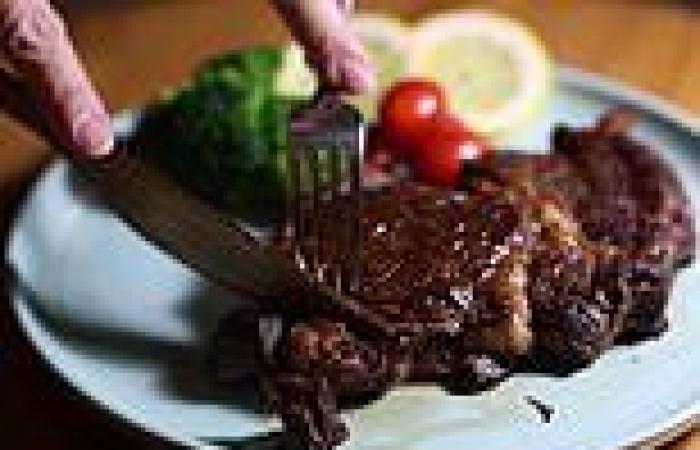A blade carefully crafted from wood is able to 'cut through steak like butter' and is three times sharper than a standard stainless-steel knife, its developers claim.
It is made using a new hardening process which makes wood 23 times stronger than usual - and are better for the environment, according to experts behind the process from the University of Maryland.
Today, the sharpest knives on the market are made from steel or ceramic, both man-made materials, which must be forged in a furnace under extreme temperatures.
However, this new knife is made by making wood as hard as those materials, through a two step process of chemically treating the wood, and applying intense pressure.
The team hasn't given any indication of when it might be available commercially, or of how much it will cost, but say the technique could also be used to make hard, wooden nails.

The team haven't given any indication of when it might be available commercially, or of price, but say the technique could also be used to make hard, wooden nails
Senior author Professor Teng Li said the knife cuts through a medium-well done steak easily, with similar performance to a dinner table steak knife.
'Afterwards, the hardened wood knife can be washed and reused, making it a promising alternative to steel, ceramic, and disposable plastic knives,' he explained.
While wood processing techniques like steaming or compression have been around for centuries, they have not been able to match the strength of man-made materials.
Professor Li said: 'When you look around at the hard materials you use in your daily life, you see many of them are man-made materials because natural materials won't necessarily satisfy what we need.
'Cellulose, the main






